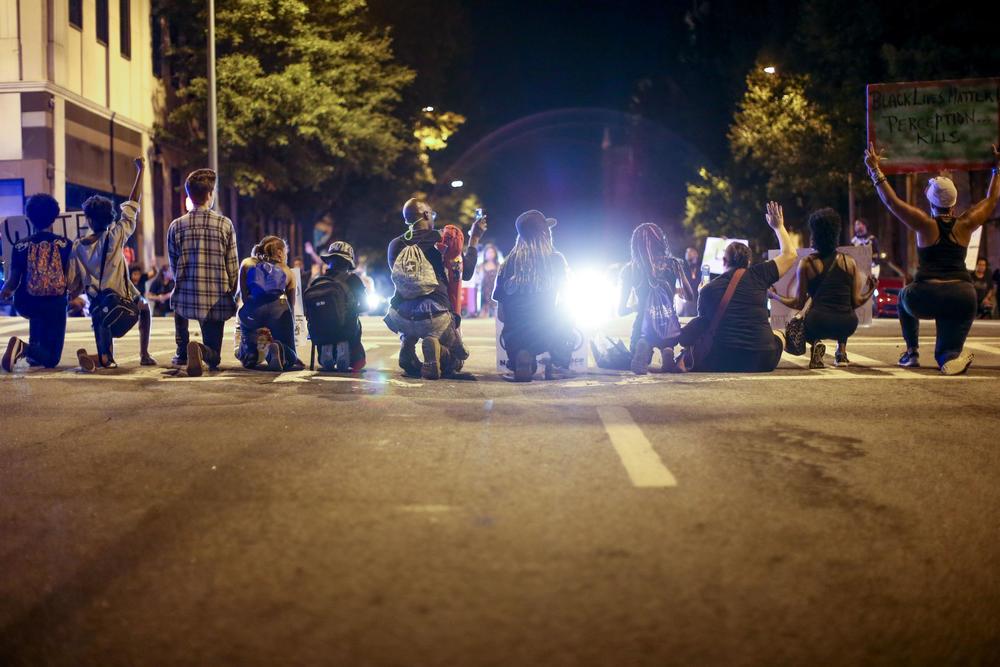
Caption
Black Lives Matter protesters sit on Peachtree Street during a protest in downtown Atlanta, Saturday, Sept. 24, 2016, in response to the police shooting deaths of Terence Crutcher in Tulsa, Okla. and Keith Lamont Scott in Charlotte, N.C.
Credit: Branden Camp / AP Photo
